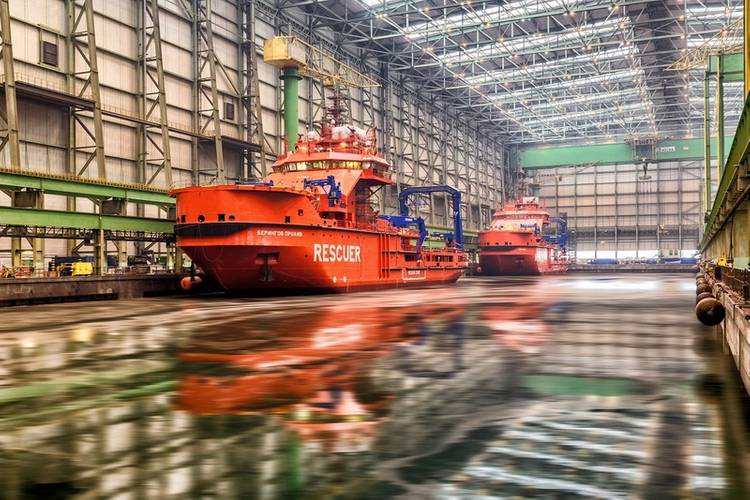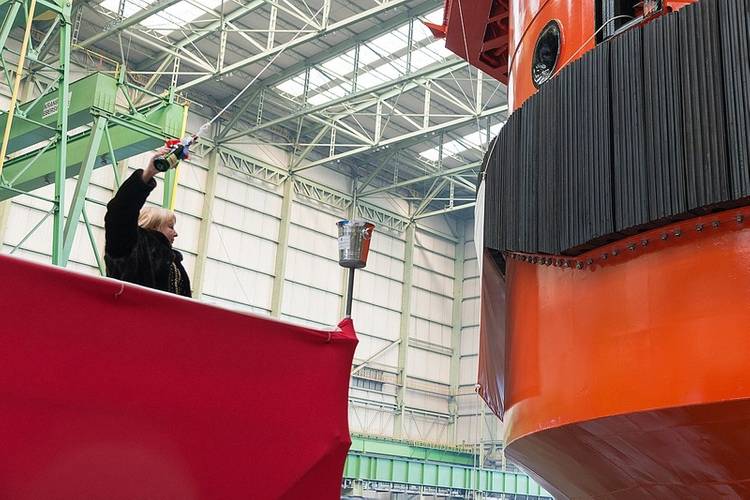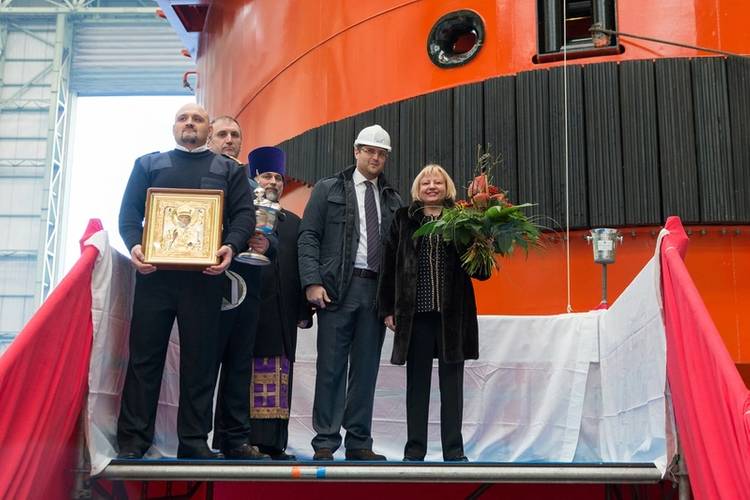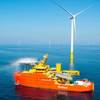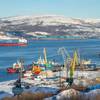Nordic Yards holds naming ceremony for new icebreaking rescue and salvage vessels designed for Arctic operations
After a construction period of around 17 months, two identically designed icebreaking rescue and salvage vessels have been named Beringov Proliv and Murman during a ceremony at Nordic Yards in Wismar.
In addition to representatives of the customer Rosmorrechflot, other participants in the naming ceremony included Russia's Deputy Transport Minister Viktor Olerskiy.
During the naming ceremony, Dr. Vitaly Yusufov, Chairman of the Management Board of Nordic Yards, stated, "Today we are naming two of the world's most modern and specialized rescue vessels. With their high-tech equipment and performance capacities these ships are capable of fulfilling the highest requirements."
Russia's Ministry of Transport placed an order with Nordic Yards in December 2012 for the multipurpose rescue and salvage vessels (MPRSV). Parallel production began in September 2013. From springtime onwards they will be used by Russia's maritime rescue services for patrols and rescue operations in the Arctic. The Beringov Proliv will mainly operate in the Sakhalin region while the Murman will cover the Northeast Passage around Murmansk.
Each vessel is 88 m in length, nearly 19 m wide and can accommodate a crew of up to 38. Thanks to their high-tech equipment they can also carry out search and rescue operations as well as emergency towing even in extreme weather conditions, while their on-board hospital facilities enable the medical treatment of people who have been rescued. The ships are also equipped to extinguish fires and combat oil spills, and in harbors or open water they can break through ice with a thickness of one meter. In addition the vessels contain technological instruments for searching the seafloor and damaged objects to depths of up to 1,000 m. Both have a helipad on the bow.







